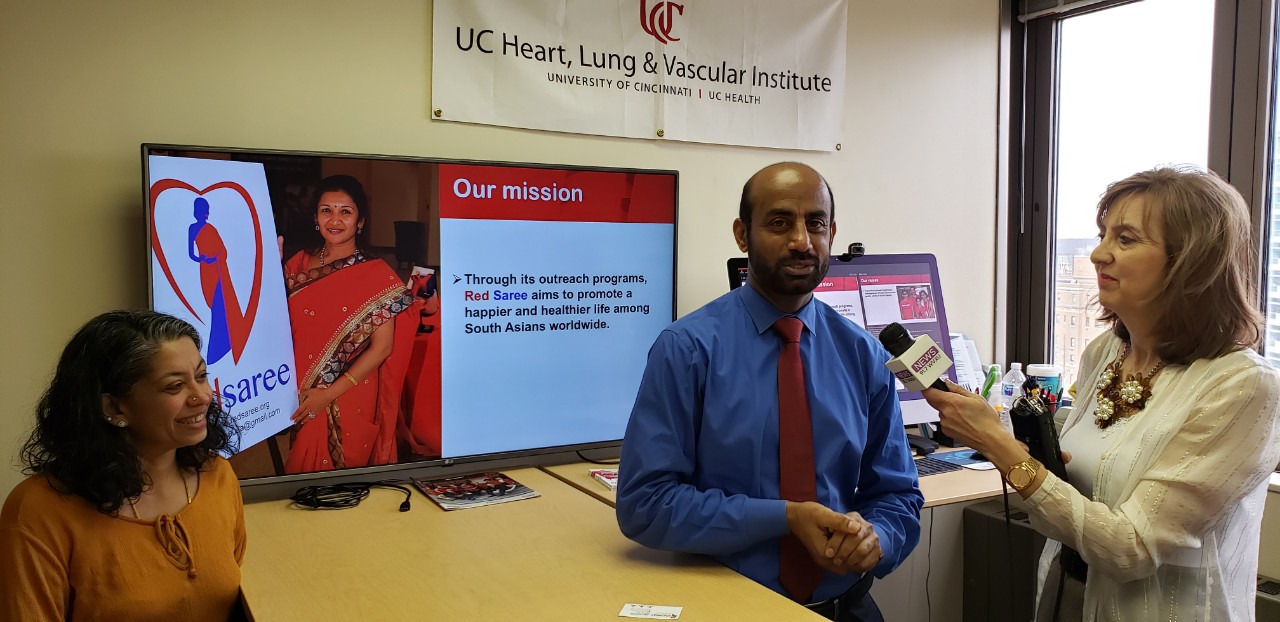
WVXU: New heart program from UC scientist is keeping South Asians across U.S. healthy
Red Saree reaches community with outreach and education
Research shows South Asians are four times more likely to develop heart disease than the rest of the population. One University of Cincinnati scientist is moving beyond genetics to talk about risk and prevention. In the midst of collecting saliva for one of his studies, Satkthivel Sadayappan, PhD, professor and director of heart research in the UC Heart, Lung and Vascular Institute, realized the South Asian community needed a greater awareness of its risk for heart disease, and a list of preventative measures to save lives.
The solution? Red Saree an awareness campaign he started in Cincinnati in 2018 and it is now spreading across the country. Chapters include Boston, San Francisco, Detroit and Chicago.
Related Stories
Pediatrician celebrates 30th UC College of Medicine reunion with...
April 3, 2025
There’s a vital thread woven into the fabric of Chris Peltier’s life. It’s black and red, and it knits all things Bearcat together into a life that was transformed by the University of Cincinnati and the UC College of Medicine.
Hands-on experiences, real-world impact
April 3, 2025
University of Cincinnati second-year medical sciences student Jay Patel is pursuing his passions as founder of the Dahyabhai Foundation, a cancer researcher and a Portman Fellow.
UC Honors students gain hands-on research experience
April 1, 2025
The Biomedical Research and Mentoring Program is open to any University Honors Program students. The faculty mentors are typically from UC’s College of Medicine or Cincinnati Children's Hospital.
